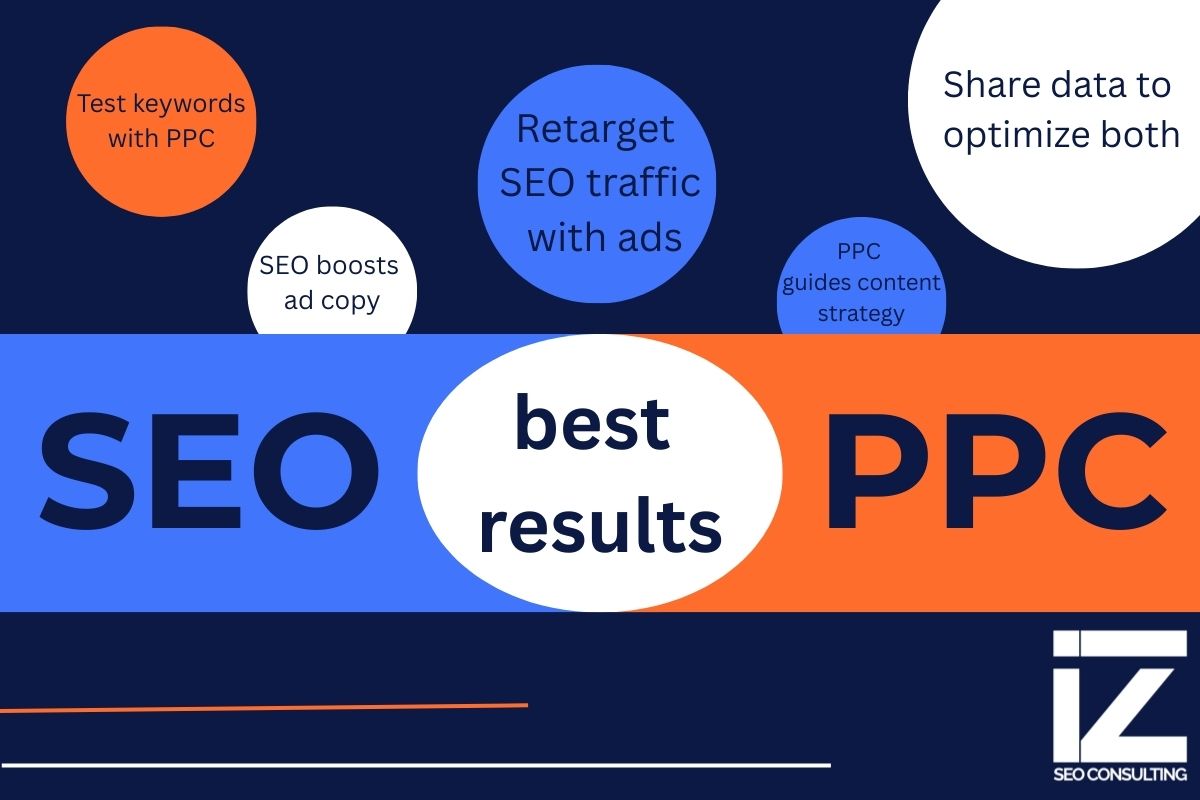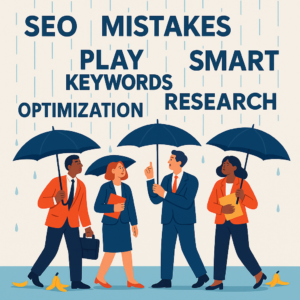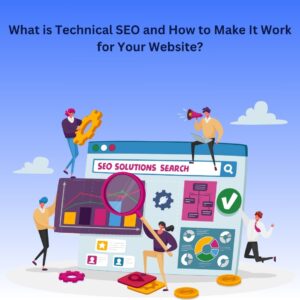One of the most fundamental debates in digital marketing involves SEO v. PPC. Many business owners want to know which of the two strategies yields better results, but in order to answer this question, it is imperative to grasp how the two strategies are fundamentally different in order to understand why the most successful companies use both channels in a highly complementary manner.
In this article, we examine what is the difference between SEO and PPC, why it is important to use both PPC and SEO, and also provide actionable techniques to analyze SEO vs. PPC and determine which channel would be more effective for you.
Quick Decision Framework
Choose SEO if:
- You have 6+ months before needing results
- Your industry has reasonable competition levels
- You want traffic that doesn’t disappear when you stop paying
- Building brand authority is a priority
Choose PPC if:
- You need traffic this week or month
- You’re testing a new market or product
- You have a budget but limited time
- Competition makes SEO victories take 12+ months
Choose Both if:
- You can afford $2,000+ monthly marketing spend
- You want to dominate your market
- You need short-term wins while building long-term assets
What is SEO?
Search Engine Optimization (SEO) involves optimizing a website to rank organically (without paying) for a desired search query. For example, if someone is searching for “CRM software for small businesses”, and your site sells that, you want your site to show up when that person searches, and you don’t want to have to pay a cost per click for that.
Core SEO Components:
- Technical SEO – site speed, optimizations for mobile, ability to be crawled (by search engines), structured data
- On-Page SEO – quality of content, optimization for target keywords, internal linking, use of meta keywords
- Off-Page SEO – backlinks, brand mentions, social signals, authority of your domain
Why Organic Rankings Matter
For informational searches, users click the free (organic) results 8-10x more than they click the paid results. After you rank, no one has to pay for the traffic again. For example, if you rank #1 for a search term that gets 10,000 searches a month, that could result in 2,700 (at 27% Click Through Rate) visitors to your site for free every month. Understanding how to increase organic traffic is crucial for businesses wanting to grow without higher ad costs.

Real Cost Example:
- Keyword: “project management software” (40,000 monthly searches)
- PPC cost: $18 per click
- If ranked #1 organically: ~10,800 free clicks/month
- Equivalent PPC value: $194,400/month
What is PPC?
Pay-Per-Click (PPC) advertising gets your ads to the top of the search results, instantly. You bid on keywords and only pay when someone clicks your ad. The biggest benefit of Google Search Campaigns is immediate visibility and the ability to control targeting.
Available platforms for PPC ads
- Google Ads: Search and Display, Shopping, YouTube
- Microsoft Ads: Bing search network
- Social PPC: Facebook Ads, Instagram Ads, LinkedIn Ads
What value does PPC deliver?
PPC advertising gets very precise and allows advertisers to serve ads based on some specific characteristics, such as geography, devices, and even the time of the day. You decide who and when to show your ads to, controlling exactly who sees your ads and when.
PPC Is Preferable When:
- There are launch events that need instant traction.
- Promotions that are time-sensitive.
- Keywords that are high intent commercially and are very competitive, making quick SEO impossible.
- There are new, untested markets researchers need to explore before establishing SEO.

SEO vs. PPC: How They Differ
Differentiating SEO and PPC requires looking beyond just grounded cost. As an example, understanding the difference in SEO and PPC rankings can be quite illuminating.
SEO rankings are deserved. These are within your control and influenced for the most part. The most cited author on SEO defines over 200 unique factors. These are both on and off the page, and include things like content, links, user experience, technical issues, and so on. It takes time, often measured in months, to gain the trust of the search engine to begin sending you free, highly relevant visitors that can make your business a success.
In contrast to what is described above, in selling advertisements, you have the ability to purchase visibility. Google guarantees you instant visibility for as long as you are willing to spend money. The issue with this model is that the visibility is limited. Once you run out of your budget, the visibility disappears. Google allows you to gain prime real estate in the search results, but only if you make a large enough monetary bid. That is why most marketing budget is allocated to PPC.
The Unseen Costs: Real Analysis of Investment
SEO Investment Analysis
Initial Setup (Months 1-3):
- Technical audit and fixes: $2,000-$5,000
- Keyword research and strategy: $1,000-$3,000
- Content creation (10-20 articles): $3,000-$10,000
- On-page optimization: $1,500-$3,000
Monthly Ongoing Costs:
- Content production: $1,000-$5,000
- Link building: $500-$3,000
- Technical maintenance: $500-$1,500
Total Monthly: $2,000-$9,500
Indexed Zone SEO and other professional agencies provide technical audit and content strategy services, so you don’t need to manage these vendor relationships.
Break-even Timeline: Competitive industries are typically between 8 and 14 months
Google Ads Investment Breakdown
Setup:
- Account structure and strategy: $1000 to $3000
- Ad creation and landing pages: $2000 to $5000
Ongoing (Monthly):
- Ad spend: $3000 to $50000+ (very wide variation)
- Management fees: 15-20% of ad spend or $1000 to $5000 flat
Total Monthly: $4000 to $60000+
Break-even Timeline: Immediate if ROAS is greater than cost
12-Month ROI Comparison
Example: CRM software $5000/month budget
SEO Only:
- Months 1-6: Minimal traffic accumulation: -$30000
- Months 7-12: 5000 visitors/month with $1 CPV effective ad spend
- Year 2+: Compounding growth with traffic over 15,000 visitors/month
- 12-Month ROI: -60% +300% in Year 2
PPC Only:
- Months 1-12: 2000 clicks/month at $2.50 CPC steady, no growth
- 12-Month ROI +120% (if 4% conversion rate maintained)
PPC and SEO Combined:
- Months 1-6: PPC is active while SEO is in development
- Months 7-12: SEO traffic is strong while PPC cost is reduced
- 12-Month ROI: 180%, Year 2: 450%
The case above shows why doing SEO and PPC simultaneously is the most effective strategy because a combined effort will give a much larger improvement than individual efforts.

What Is the Difference Between SEO and PPC Keywords?
The difference between SEO and PPC keywords is much larger than selection bias, and results in completely different approaches to content and campaign structure.
SEO Keywords Strategy
SEO Keywords Focus:
- Informational, navigational, and commercial intent
- Long-tail phrases (lower competition)
- More relevant, integrated, and naturally written phrases
- 3-7 words average phrases for lower competition
Example phrases: “how to choose CRM software for small business,” “best free project management tools 2025”
Selection Criteria:
- Balanced search volume vs difficulty
- Relevance to business offerings
- Natural content fit
- Alignment to user intent
- Long-term ranking potential
PPC Keywords Strategy
PPC Keywords Focus:
- High-intent transactional searches
- Commercial short-term work is best
- Based on CPC (cost per click) and conversion potential
- 1-4 words average for direct intent phrases
Example direct intent phrases: “buy CRM software”, “project management free trial”
Selection Criteria:
- Affordability of cost per click
- Probability of conversion
- Potential for Quality Score
- Competitive Analysis
- Immediate ROI to be gained
Applying SEO and PPC keywords results in cohesive strategies where PPC assesses the keyword performance prior to SEO content maturation, which could take months.
When to Use Each Strategy
Utilizing SEO When:
- You have time – 6 or more months before a critical ROI is needed.
- Competition is manageable – Domain Authority gap is less than 30 points.
- Content is your strength – You are able to create quality articles on a regular basis.
- You are a long-term thinker – Constructing an asset is more valuable than obtaining quick wins.
- You have a limited ongoing budget – You prefer an upfront investment to an ongoing perpetual spend.
- Trust matters – Industries such as B2B, healthcare, finance, and legal.
Utilizing PPC When:
- Speed is essential when launching a new product, seasonal campaigns, or promoting events.
- You are testing new markets – You need to validate demand before committing to SEO.
- Remarketing opportunities are available – Re-engage previous site visitors.
- A competitor is dominating SEO – You can’t wait years to compete organically.
- Specific targeting is needed – You want precise geographic, demographic, or behavioral targeting.
- High-value transactions – The long-term value justifies a CAC of $50-$200.
When to Use SEO vs. PPC
Determining optimal channel selection depends on specific business objectives:
SEO performs best when:
- Long-term growth remains the primary focus
- Industries prioritize authority and trustworthiness
- Businesses prefer sustainable traffic over ongoing costs
PPC excels when:
- Immediate traffic generation is critical
- New product testing requires quick feedback
- Market competition makes rapid SEO victories unlikely
Business owners often wonder, “Should I do PPC and SEO at the same time?” When budgets permit, the answer is typically yes—these strategies create powerful synergies.
Should I Do PPC and SEO at the Same Time?
Doing SEO and PPC simultaneously is complex because of your individual circumstances, and therefore warrants a nuanced answer.
Do Both When:
- Your budget allows – $3,000 or more monthly for a worthwhile dual investment.
- Your goal is market dominance – You want to hold both the paid and organic positions.
- [✓] Required Data Synergy – Retargeting is fueled by SEO, visitor PPC insight
- [✓] Required Balanced Growth – Seeking both quick wins and long-term assets
- [✓] Required Competitive Market – Rivals’ integrating strategies
Why SEO and PPC Work Together
Knowing how SEO and PPC work together is the reason for successful integrated strategies over siloed strategies. Here are 5 of many integration tactics done right:
- PPC Insights → SEO: Gaining and analyzing successful HIGH CONVERTING keywords. Which copy got the best CTR? Winning ad variations for long tail keywords with low CPC and high conversion.
- Build SEO content around these winning keywords.
- SEO Insights → PPC: Questions from “People Also Ask”? Find topics causing a surge in your organic traffic.
- Identify irrelevant organics to find your negative keywords. Use your ad copy to create better landing pages for ranked content.
- SERP Domination Strategy: Being present in both paid and organic SERP results is likely to increase total clicks by 25–50% compared to either channel alone. It is likely the case that users who scroll by your ad will click your organic result and vice versa.
Visibility Formula:
- Natural First place: ~27% CTR
- Paid top-prioritized ad: ~8% CTR
- Both combined: ~35-40% total CTR (overlap consideration)
This shows SEO and PPC integrate to enhance search visibility and market share.
Remarketing Synergy
Using SEO to bring in top-of-funnel traffic, then targeting with PPC:
- Blog visitors → Display ads with products
- Service page viewers → Search ads with high-intent keywords
- Abandoned carts → Dynamic product ads
Cost Efficiency: Remarketing CPCs are 50-70% cheaper than for cold traffic
Testing and Validation
Before developing SEO content, run tests with PPC:
- Launch PPC campaigns for specific target keywords
- Analyze user behavior and conversion rates
- Assess which angles and messaging perform best
- Create SEO content based on top-performing keywords
Risk Reduction: Minimize the risk of spending 3-6 months developing SEO for keywords with little or no conversion
Budget Reallocation
Once SEO rankings are enhanced:
- Decrease PPC spending on keywords you now rank for organically
- Increase PPC budget on more competitive terms
- Keep brand protection on your own branded terms
Efficiency Gain: Mature integrated campaigns often reduce total customer acquisition cost by 35-50%

Real-World Examples of PPC and SEO Working Together
Practical implementation through a variety of business scenarios demonstrates the value of SEO and PPC across the combined channels.
Example 1: Launching an E-commerce Business
Strategy: Establish an SEO foundation while utilizing PPC for immediate sales
Months 1-3:
- PPC account for 80% of revenue and website traffic
- Start collecting data on keyword conversions
- Determine which product categories perform the best
Months 4-6:
- Publish SEO content for the keywords that have proven to convert
- Create category pages for the website to rank for search
- PPC continues to fund the business
Months 7-12:
- Start to see the results of your SEO efforts
- Decrease your PPC spending by 30% on the keywords you now rank for
- Use the savings to invest in testing new products to your catalog
Result: The traffic acquired through PPC and the traffic acquired through SEO efforts combined to lower overall CAC by 42% and increased overall traffic by 210%.
Example 2: B2B Services
Strategy: PPC for immediate leads and SEO for authority
Approach:
- PPC is focused on the lower funnel “buy now” keywords
- SEO is focused on education and thought leadership
- Retargeting through PPC the readers of the SEO blogs with Service Offers
Result: In this case of PPC and SEO combined, the lead quality score improved by 35% because the prospects were educated via the organic content before they converted through the paid ads.
Example 3: Local Service Provider
Strategy: Capture local search by having a dual presence
Implementation:
- Pay-per-click (PPC) advertising for “near me” and emergency service searches
- SEO for a longer-term planning cycle, authority building
- Both show up in local pack and standard results
Result: PPC and SEO together achieved different user intent and search pattern capturing, increasing total market share from 12% to 34% in 18 months.
The Benefits of Combining PPC & SEO Marketing Campaigns
Intertwined strategies have been proven to outperform separate strategies by 2-3x over a 24 month period. This validates the importance of PPC and SEO.
Reason 1: Cover All Search Intent Stages
- PPC: Transactional, high-intent searches
- SEO: Informational, research-phase searches
Together: You have the ability to capture users throughout their buying journey.
Reason 2: Risk Mitigation
- SEO: Algorithm updates, ranking volatility, and slow results.
- PPC: Rising costs, budget dependency, and can be turned off at an instant.
Together: Diversified traffic sources protect your business.
Reason 3: Competitive Advantage
Integrated competitors will capture the market share when using a separate channel.
Reason 4: Data Synergy
SEO uncovers the user queries PPC should target, and vice versa, to improve the overall PPC strategy.
Reason 5: Cost Optimization Over Time
Starting with a PPC strategy and adding an SEO strategy later makes you dependent on your paid traffic. Integrated strategies reduce overall customer acquisition costs and deliver results at the same time.
Reason 6: Maximizing SERP Coverage
Achieving multiple rankings (both paid and organic) improves brand recall and builds trust. Consumers are 2.5x more likely to click on your brand if they see it multiple times.
Reason 7: Budget Flexibility
If there are economic downturns or cash flow problems, you can slow PPC while SEO continues. If there are growth phases, you can increase PPC while SEO builds. Having both gives strategic flexibility.
Knowing why you must use both PPC and SEO shifts your perspective completely when it comes to digital marketing. It allows more integrated approaches, rather than just choosing one side.
FAQ
Using both strategies maximizes your reach. SEO builds long-term credibility, while PPC brings instant visibility, so they complement each other perfectly.
PPC provides quick insights on what keywords work best, which can inform your SEO strategy. Plus, appearing in both paid and organic results strengthens brand trust.
Yes! SEO is great for long-term goals like establishing authority, while PPC suits short-term goals like product launches or seasonal promotions.
SEO and PPC: Final Thoughts
Analytics indicate that PPC and SEO integration increases productivity by 2-3 times for the following 2 years. Success is the ability to strategize SEO and PPC differently and to understand the convergence of the latter.
The next step is conducting a strategic audit of your current state, competitive landscape, and growth timeline to build your customized SEO + PPC roadmap. This process clarifies where your opportunities lie and how each channel should be used to maximize long-term impact.



